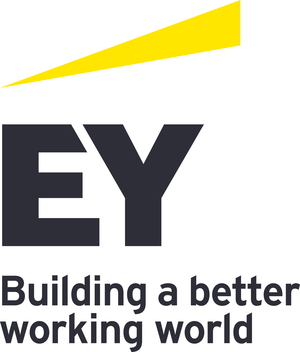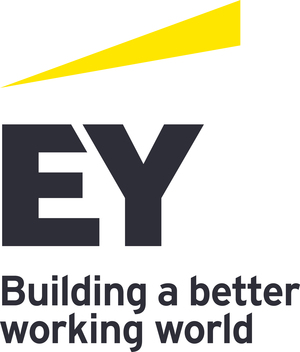
NEW YORK, March 11, 2014 /PRNewswire/ -- Despite the efforts of corporate social compliance programs that have swelled in the aftermath of tragedies like the 2013 incident at Bangladesh's Rana Plaza Garment Factory, risks of egregious human rights abuses in some corporate supply chains persist. While attention has recently been on the apparel and electronics industries, the issue of human rights is a growing imperative for all companies whose supply chains extend to developing countries. In a new report – Human rights and professional wrongs – EY discusses the existing approach to social compliance and calls out the need for industry and the assurance community to reconsider some basic fundamentals of this approach for sustained improvement to occur. Further to this, EY offers a new risk-based approach that can improve worker conditions throughout the supply chain, protect brand reputation and prevent costly compliance issues in the aftermath of a disaster.
While a social compliance refresh is just one of a number of critical corporate compliance issues competing for executive attention and budget, it is important to recognize that the issues and incidents that have brought human rights to the public agenda will not diminish anytime soon. In fact, the prevalence of grassroots activism across the developed and developing world is strengthened by social media.
"As we saw in Bangladesh, the current approach to social compliance masks what's really happening in some factories, so we only hear about human rights issues when there's a tragedy," said Adam Carrel, Senior Manager, Climate Change and Sustainability Services, Ernst & Young LLP. "A risk-based assessment provides the opportunity to uncover human rights abuses early enough in the business cycle that companies can do something about them before a problem erupts."
The first step for any company that is contract manufacturing in a developing country is to perform a current state assessment of the human rights risks within their supply chain. This risk-based approach recommends strategic use of internal auditors as well as third-party certifiers and auditors and empowers assessors to cover a large and representative sample of a company's factory base and to expand the scope of work to cover the root causes behind the physical indicators of non-compliance.
Assessments should look to:
- Tighten procurement systems to prevent orders from being placed with factories that have not had their social compliance status assessed: this practice, if implemented broadly, could become a new minimum standard across industry.
- Bring agents and intermediaries into line with the social compliance expectations of retailers: retailers need to know about the conditions in the factories producing their goods.
- Include cultural as well as visual change in corrective action plans: it is important to drive behavioral change so there is continuous improvement in health and safety outcomes.
- Tackle the larger problem: once a company is at the point of performing a social compliance audit, many of the most important human rights-related decisions have already been made. For there to be material improvement in human rights in the modern supply chain, corporations need to incorporate the consideration of human rights much sooner in the business cycle.
- Help companies maintain longer relationships with a smaller number of suppliers: factories must be incentivized to invest in substantive improvements to working conditions. A transition toward supplier consolidation based on demonstrated human rights improvement over time will require a partial re-envisioning of what constitutes high performance among procurement personnel.
Where possible, assessments should be performed by an experienced, multidisciplinary assessment team that looks at risk in contexts where risk is greatest (e.g. migrant workforces, least-developed countries, excessively manual processes).
As more companies tackle this issue, corporate board members should use their positions to focus attention on human rights risk as well. Questions board members can and should be asking their officers include:
- Does our supply chain touch a Least Developed Country?
- Have we ever performed an internal audit of our end-to-end social compliance framework?
- Do we procure our goods through an agent?
- What does our approach to human rights say about us as a company?
These questions coupled with a substantive assessment can help raise awareness of human rights abuses within a supply chain, giving companies the information they need to address this significant issue in a meaningful way.
For more information and to read the full report, visit www.ey.com/us/sustainability.
About EY's Climate Change and Sustainability Services
Climate change and sustainability continue to rise on the agendas of governments and organizations around the world with rapidly evolving drivers and expectations. Your business faces regulatory requirements and the need to meet stakeholder expectations as well as respond to the opportunities presented for revenue generation and cost reduction. This means a fundamental and complex transformation for many organizations and the embedding of climate change and sustainability into core business activities to achieve short term objectives and create long-term shareholder value. The industry and countries in which you operate as well as your extended business relationships introduce additional complexity, challenges, responsibilities and opportunities. Our global, multidisciplinary team combines our core experience in assurance, tax, transactions and advisory with climate change and sustainability skills and deep industry knowledge. You'll receive a tailored service supported by global methodologies to address issues relating to your specific needs. Wherever you are in the world, EY can provide the right professionals to support you in achieving your potential. It's how we make a difference.
About EY
EY is a global leader in assurance, tax, transaction and advisory services. The insights and quality services we deliver help build trust and confidence in the capital markets and in economies the world over. We develop outstanding leaders who team to deliver on our promises to all of our stakeholders. In so doing, we play a critical role in building a better working world for our people, for our clients and for our communities.
EY refers to the global organization, and may refer to one or more, of the member firms of Ernst & Young Global Limited, each of which is a separate legal entity. Ernst & Young Global Limited, a UK company limited by guarantee, does not provide services to clients. For more information about our organization, please visit ey.com.
This news release has been issued by Ernst & Young LLP, an EY member firm that provides services to clients in the US.
Logo - http://photos.prnewswire.com/prnh/20130701/NY40565LOGO-b
SOURCE EY






Share this article